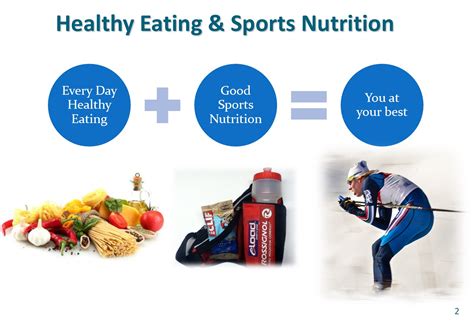As an athlete, you understand the importance of fueling your body for optimal performance. Sports nutrition plays a vital role in enhancing your athletic abilities, and it's not just about consuming enough calories to sustain energy levels. A well-planned sports nutrition strategy can significantly impact your performance, helping you achieve your goals and gain a competitive edge. In this article, we'll explore the seven ways sports nutrition impacts athletic performance.
The Importance of Sports Nutrition
Proper nutrition is essential for athletes to perform at their best. A well-balanced diet provides the necessary fuel for energy production, supports muscle function and recovery, and helps maintain overall health. Adequate nutrition also enables athletes to adapt to the physical demands of training and competition.
1. Energy Production and Endurance
Sports nutrition affects energy production, which is critical for endurance activities like distance running, cycling, or swimming. Carbohydrates, proteins, and fats are the primary sources of energy for athletes. Carbohydrates, particularly complex carbs like whole grains, fruits, and vegetables, are essential for providing sustained energy levels. Adequate carbohydrate intake helps maintain blood sugar levels, delaying the onset of fatigue.
Image

2. Muscle Function and Recovery
Protein is vital for muscle function and recovery. Adequate protein intake helps build and repair muscle tissue, reducing muscle soreness and damage after intense exercise. Protein also plays a role in maintaining muscle mass, which is essential for athletes who require strength and power.
Image

3. Hydration and Electrolyte Balance
Proper hydration is crucial for athletes, as it affects physical performance and overall health. Even mild dehydration can cause fatigue, decreased endurance, and impaired cognitive function. Electrolytes, such as sodium, potassium, and magnesium, also play a critical role in maintaining proper hydration levels.
Image

4. Immune Function and Reduced Illness
A well-planned sports nutrition strategy can help boost immune function, reducing the risk of illness and infection. Adequate nutrition, particularly vitamin C, vitamin E, and beta-carotene, helps support immune function, while probiotics and omega-3 fatty acids also play a role in maintaining a healthy immune system.
Image

5. Mental Performance and Focus
Sports nutrition can also impact mental performance and focus. A well-balanced diet that includes foods rich in omega-3 fatty acids, antioxidants, and other essential nutrients can help improve cognitive function and reduce stress levels.
Image

6. Weight Management and Body Composition
Proper sports nutrition is essential for weight management and maintaining optimal body composition. Adequate nutrition helps athletes achieve and maintain a healthy weight, reducing the risk of injury and improving overall performance.
Image

7. Reduced Injury Risk and Faster Recovery
A well-planned sports nutrition strategy can help reduce injury risk and promote faster recovery. Adequate nutrition, particularly protein and carbohydrates, helps support muscle function and repair, reducing muscle soreness and damage after intense exercise.
Image

Gallery of Sports Nutrition






Frequently Asked Questions
What is the importance of sports nutrition for athletes?
+Proper sports nutrition is essential for athletes to perform at their best, providing the necessary fuel for energy production, supporting muscle function and recovery, and maintaining overall health.
How does sports nutrition impact energy production and endurance?
+Adequate carbohydrate intake helps maintain blood sugar levels, delaying the onset of fatigue, while protein and fats also play a role in energy production and endurance.
What is the role of hydration and electrolyte balance in sports nutrition?
+Proper hydration is crucial for athletes, as it affects physical performance and overall health, while electrolytes, such as sodium, potassium, and magnesium, help maintain proper hydration levels.
As you can see, sports nutrition plays a vital role in enhancing athletic performance, and it's not just about consuming enough calories to sustain energy levels. A well-planned sports nutrition strategy can help improve energy production and endurance, support muscle function and recovery, and maintain overall health. By understanding the importance of sports nutrition, athletes can optimize their performance, achieve their goals, and gain a competitive edge.
